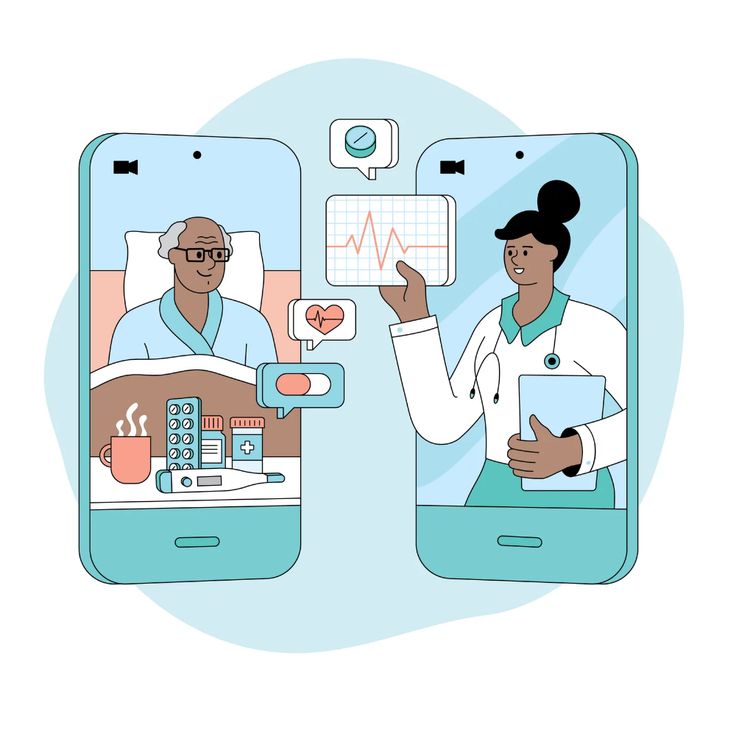
In recent years, the field of mental health care has witnessed a significant transformation, thanks to the rise of telehealth. Telehealth, or telemedicine, refers to the delivery of healthcare services remotely through telecommunications technology, and its impact on mental health care has been revolutionary. This article explores how telehealth is changing the landscape of mental health care, examining its benefits and challenges along the way.
Benefits of Telehealth in Mental Health Care:
- Increased Access to Care: One of the most notable benefits of telehealth is its ability to improve access to mental health services, especially for individuals living in remote or underserved areas. Through telehealth platforms, patients can connect with mental health professionals regardless of geographical barriers, reducing the need for long commutes or wait times.
- Convenience and Flexibility: Telehealth eliminates the need for in-person appointments, offering patients greater flexibility in scheduling sessions. This convenience is particularly beneficial for individuals with busy lifestyles, mobility issues, or transportation limitations. Moreover, telehealth allows patients to receive care from the comfort and privacy of their own homes, which can reduce stigma and increase engagement in treatment.
- Cost-Effectiveness: By reducing the need for travel and overhead expenses associated with traditional healthcare settings, telehealth can be a more cost-effective option for both patients and providers. This can lead to savings in terms of time, money, and resources, making mental health care more accessible and sustainable in the long run.
- Improved Outcomes: Research has shown that telehealth interventions can be just as effective as in-person treatments for many mental health conditions, including depression, anxiety, and PTSD. Through videoconferencing, online therapy platforms, and mobile apps, patients can receive evidence-based interventions, psychoeducation, and support that promote positive outcomes and symptom management.
- Integration with Technology: Telehealth leverages advancements in technology to enhance the delivery of mental health care. This includes features such as secure messaging, virtual reality therapy, wearable devices for tracking symptoms, and artificial intelligence tools for personalized interventions. These technological innovations empower patients and providers alike, enabling more efficient and tailored approaches to treatment.
Challenges of Telehealth in Mental Health Care:
- Digital Divide: Despite its potential benefits, telehealth exacerbates existing disparities in access to care for individuals who lack reliable internet access or digital literacy skills. This digital divide disproportionately affects marginalized communities, including rural populations, low-income individuals, and older adults, limiting their ability to benefit from telehealth services.
- Privacy and Security Concerns: Telehealth raises concerns about the privacy and security of patient information, particularly regarding the transmission of sensitive data over digital platforms. Providers must adhere to strict confidentiality standards and implement robust encryption protocols to safeguard patient confidentiality and comply with healthcare regulations such as HIPAA.
- Quality of Care: While telehealth can offer convenient and timely access to mental health services, some critics argue that it may compromise the quality of care compared to traditional face-to-face interactions. Factors such as technological glitches, communication barriers, and the lack of nonverbal cues could potentially impact the therapeutic alliance and treatment effectiveness.
- Regulatory and Reimbursement Issues: The rapid expansion of telehealth has outpaced existing regulatory frameworks and reimbursement policies, creating uncertainty for providers and payers alike. State licensure requirements, liability issues, and reimbursement rates vary widely across jurisdictions and insurance plans, posing challenges for the widespread adoption and sustainability of telehealth services.
- Digital Health Equity: As telehealth becomes increasingly integrated into mental health care delivery, it is essential to address issues of digital health equity to ensure that vulnerable populations have equitable access to services. This requires targeted efforts to bridge the digital divide, promote health literacy, and develop culturally competent telehealth solutions that meet the diverse needs of all individuals.
Telehealth has emerged as a transformative force in the field of mental health care, offering unprecedented opportunities to improve access, convenience, and effectiveness of services. However, realizing the full potential of telehealth requires addressing various challenges related to equity, privacy, quality, and regulation. By leveraging technology responsibly and collaboratively, stakeholders can harness the power of telehealth to create a more inclusive and resilient mental health care system for all.